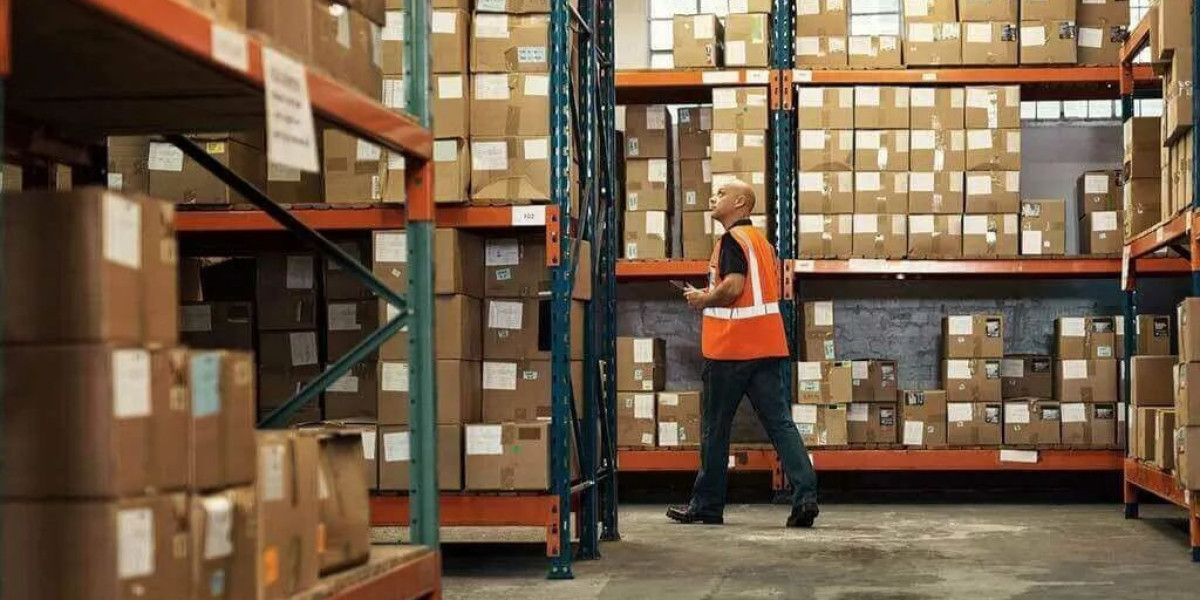Wholesale distributors play a pivotal role in the supply chain, serving as intermediaries between manufacturers and retailers or end-users. For businesses, understanding how wholesale distribution works can significantly enhance profitability, operational efficiency, and market reach. In this comprehensive guide, we’ll explore the functions, benefits, and strategies related to wholesale Distributors and how businesses can leverage them effectively.
What Are Wholesale Distributors?
Wholesale distributors are companies or individuals that purchase goods in bulk from manufacturers and resell them to retailers, resellers, or other businesses at a markup. They bridge the gap between production and consumption by providing logistical support, inventory management, and distribution expertise.
Key Features of Wholesale Distribution:
Bulk Purchasing: Distributors buy products in large quantities to secure lower unit costs.
Inventory Management: They store products in warehouses until they are sold to retailers or businesses.
Market Knowledge: Distributors often have deep insights into market trends, helping manufacturers place their products strategically.
Logistical Support: They handle transportation, warehousing, and distribution, ensuring timely delivery to clients.
The Role of Wholesale Distributors in the Supply Chain
Wholesale distributors act as vital connectors in the supply chain, ensuring that goods flow smoothly from production to retail. Their contributions include:
Reducing Manufacturer Costs: By taking on responsibilities like warehousing and shipping, distributors allow manufacturers to focus on production.
Enhancing Retailer Convenience: Retailers can rely on distributors for consistent stock availability, eliminating the need to deal directly with multiple manufacturers.
Streamlining Logistics: Distributors consolidate shipments, making it easier to distribute products across various geographic regions.
Providing Market Access: They enable smaller manufacturers to access broader markets and connect with numerous retailers.
Benefits of Working with Wholesale Distributors
1. Cost Savings
Purchasing in bulk through distributors often reduces costs for retailers. Distributors negotiate favorable terms with manufacturers, passing on some of these savings to their clients.
2. Access to Diverse Products
Wholesale distributors usually stock a wide range of products, allowing retailers to source multiple items from a single supplier. This convenience saves time and simplifies inventory management.
3. Expertise and Insights
Experienced distributors provide valuable insights into market trends, consumer preferences, and seasonal demands, helping businesses optimize their offerings.
4. Flexible Order Sizes
Retailers benefit from flexible order sizes, as distributors often break down bulk shipments into smaller, manageable quantities suitable for retail.
5. Logistics Support
Distributors’ infrastructure ensures efficient storage, transportation, and timely delivery of products, reducing the logistical burden on retailers.
Types of Wholesale Distributors
Usa Wholesale Distributors cater to various industries and product categories. Common types include:
General Merchandise Distributors: These distributors handle a wide variety of products, ranging from household goods to electronics.
Specialty Distributors: They focus on specific product categories, such as fashion, pharmaceuticals, or automotive parts.
Industrial Distributors: Catering to B2B markets, they supply tools, machinery, and industrial equipment.
Food and Beverage Distributors: These distributors specialize in perishable goods and manage refrigerated transportation and storage.
E-commerce Wholesalers: Focused on online retail, they often integrate drop-shipping services to cater directly to e-commerce businesses.
Finding the Right Wholesale Distributor
Choosing the right distributor is crucial for the success of your business. Here are steps to identify and select the best partner:
1. Define Your Needs
Assess your product requirements, volume needs, and delivery expectations. This clarity will help you narrow down your options.
2. Research and Compare
Use industry directories, trade shows, and online platforms to identify potential distributors. Compare their offerings, pricing, and terms.
3. Evaluate Reliability
Check reviews, testimonials, and references to assess the distributor’s track record for reliability and customer service.
4. Negotiate Terms
Discuss payment terms, delivery schedules, and return policies to ensure they align with your business needs.
5. Build a Strong Relationship
Maintaining open communication and mutual trust with your distributor fosters a long-term, mutually beneficial partnership.
Challenges in Wholesale Distribution
While Amazon Approved Distributors offers many advantages, businesses must navigate challenges such as:
Supply Chain Disruptions: Events like natural disasters or geopolitical tensions can impact the availability of products.
Rising Costs: Transportation, warehousing, and raw material costs can drive up wholesale prices.
Technological Advancements: Adapting to new technologies like automation and AI in inventory management requires investment.
Competition: The rise of direct-to-consumer models and online marketplaces creates competition for traditional wholesale distributors.
Leveraging Technology in Wholesale Distribution
Technology is transforming the wholesale distribution industry. Key innovations include:
1. Inventory Management Software
Advanced tools help distributors track stock levels, forecast demand, and manage reordering efficiently.
2. E-commerce Integration
Many distributors now offer online platforms where businesses can browse catalogs, place orders, and track deliveries in real-time.
3. Data Analytics
Analytics tools provide insights into customer preferences, sales trends, and operational efficiency.
4. Automation
Automated warehouses and robotic systems streamline order fulfillment, reducing errors and labor costs.
5. Blockchain Technology
Blockchain enhances transparency and traceability in the supply chain, improving trust and accountability.
Strategies for Businesses to Work Effectively with Wholesale Distributors
Establish Clear Communication: Ensure all terms, expectations, and requirements are well-communicated and documented.
Monitor Performance: Regularly evaluate your distributor’s performance to ensure they meet your quality and delivery standards.
Stay Flexible: Be open to adjusting your strategies based on market conditions and distributor recommendations.
Diversify Suppliers: Avoid over-reliance on a single distributor to mitigate risks related to supply chain disruptions.
Invest in Relationships: Building strong relationships with distributors can lead to better terms, priority service, and collaborative growth opportunities.
Future Trends in Wholesale Distribution
The wholesale distribution landscape is evolving rapidly. Key trends to watch include:
Sustainability Practices: Distributors are increasingly adopting eco-friendly practices, such as using renewable energy and optimizing transportation routes.
Omnichannel Integration: Wholesale distributors are bridging online and offline sales channels to cater to diverse customer needs.
AI and Machine Learning: Predictive analytics and machine learning tools are enhancing demand forecasting and operational efficiency.
Global Expansion: Many distributors are expanding their operations internationally, tapping into new markets.
Personalization: Distributors are leveraging data to offer personalized recommendations and tailored services to their clients.
Conclusion
Wholesale distributors are indispensable partners for businesses aiming to scale efficiently and meet market demands. By understanding the dynamics of wholesale distribution, leveraging technological advancements, and building strong relationships, businesses can unlock significant value and stay competitive in an ever-changing market. Whether you’re a retailer or a manufacturer, aligning with the right Wholesale Extracts Flavorfrenzy distributor can be the key to long-term success.















